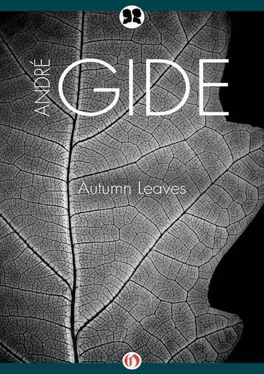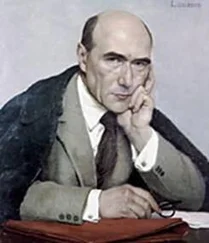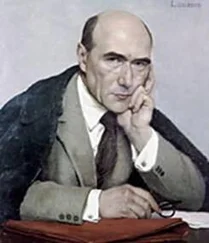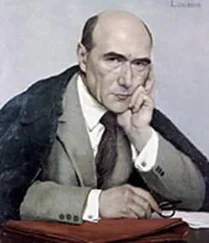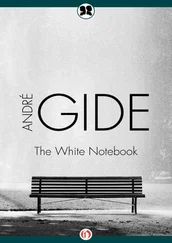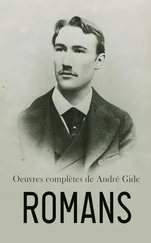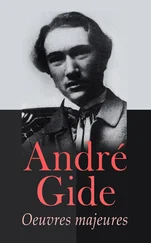In the animal kingdom, we gaze at the happy couples; the rejected and the bruised hide away. For certain species we know that one insect out of a hundred arrives at fulfillment; for others, one out of a thousand. Sometimes a single male jealously reserves his personal rights over a whole seraglio; woe to the other males who approach it or woe to him. And from species to species, even if one does not sacrifice the other to his own subsistence, murderous rivalries maintain a sort of equilibrium disputed ceaselessly, in the perpetual competition for space and nourishment. The appearance of happiness is obtained only by the almost immediate elimination of the infirm and the weak. Nature acts like those South Sea Islanders who, we are told, make the sick and the aged climb up into a tree, on certain holidays, then shake the tree and sacrifice those who have not the strength to hold on. After which the traveler who comes up can admire, you can bet on it! the smiling and jolly aspect of the population.
Most certainly it would be imprudent to draw from these statements any teaching whatever. Moreover it is not as a moralist that I speak here. I am not of those who search and find lessons endlessly, and everywhere, without for that reason becoming any wiser. Nor am I of those who say:
I dream of summers that last
Forever
and I believe it preferable to adapt oneself as well as possible to what is. I find charm and pleasure in alternation, rather than in continuity. The perpetual summer of the tropics is vexing in that it prevents the springtime. As Saint-Amant said so exquisitely:
The orange on the same day ripens and buds,
And during all the months can be seen in those places
Both spring and summer blending in with the autumn …
so that one never knows where one is. I like the seasons well defined, and see to it that I do not confuse the kinds. Among the flowers, I forget the fruits, and reserve the ratiocinations for winter.
LAST year, while visiting Jean Schlumberger who was my neighbor in the country, at the time that I was “a man of property” in Calvados, I went back to see La Roque where, as I relate elsewhere, I spent so long a time pleasantly in my childhood. The property is now completely enclosed by barbed wire. On seeing it I feel within me the soul of a communist. I never had a possessive one. The very word property owner seems to me ridiculous and odious. As for this estate, that I inherited from my mother when I was still very young, I suffered at knowing the exact extent of its boundaries; or rather, I would not allow myself to know them; not so that I could imagine I owned more, but, on the contrary, to keep myself from thinking that any of all this that I loved here was personally and exclusively my property. When, in the evening, I seated myself on the other side of the hill from which the wooded country becomes visible, the grassy foot-hills, the clumps of trees, the brushwood, the course of the little river often hidden by the high willow-herbs, the alders and the hazel-trees, could very well cease to be mine without losing their attraction for all that. I remained contemplative and did not feel any more obligations toward the country than the country felt for me.
In 1896, the news that Robidet came to announce to me triumphantly on a certain fine holiday, fell on me like a catastrophe. Thanks to his zealous machinations, I had just been elected mayor. He had been maneuvering that for a long time; without my knowledge, needless to say. But first it was necessary to wait until I had reached the legal age and until the mayor whom I should succeed had given up the position. He died just as I was entering my twenty-fifth year. Robidet, who already held the double duties of keeper and factor, was still intriguing to obtain those of deputy mayor, to which the great service he was thus rendering the community and his master, designated him naturally. He was counting on my lack of taste for authority, and thought very pertinently that my easy going nature and my youth would assure him absolute power. Robidet, who was already reigning during my mother’s lifetime and whom I had inherited from her along with the property, thought little, talked a great deal, and sized up everyone according to himself. His conduct was solely guided by self-interest and respect for convention. “Oh! sir, that isn’t done,” he said to me, when I wanted to have a cripple who was making his way painfully along the road get into the cariole that was taking us to the market at Lisieux; and, to get by him more quickly, a cut from the whip put the horse to a gallop. He was, moreover, of a very questionable honesty, but safeguarded appearances and was skillful in taking refuge behind “custom,” as soon as it happened that I wanted to examine his accounts. He seemed to get into the good graces of everyone at my expense. That is what may explain that the six farms and the woods that comprised the estate of La Roque, spread over several communes, never brought me in anything but worries.
I was newly married. I was walking, I remember, in an avenue of the garden, between my wife and my friend Eugène Rouart who, entirely devoted to politics and as up-to-date as I was not, straightway expounded to me the advantages this election offered me. From the town hall to council general there was only a step; another to the Chamber of Deputies. My career was marked out. And Robidet, who was surprised at the reddening of my countenance, approved it. Em said nothing, understanding better the reasons for my sudden gloom; entire nature around me lost its enchantment. Complicated relationships of the practical order would oppose themselves henceforth to the disinterestedness of my glances. My love affairs with the country would cease to be platonic. I felt myself already beleaguered by the crushing care of new duties. It would be the end of dreams and contemplative walks. Nevertheless Em herself considered that I could not decline. It was in the interest of everyone, she maintained. For she was well enough acquainted with me to know that, once I was mayor, I would not be willing to be so half-heartedly, since I took nothing lightly. So I accepted. And those who claim that I am indifferent to public affairs surely cannot imagine the civic zeal that I observed in the exercise of my very absorbing functions.
One of my first acts was to have an alcoholic interned in the sanitarium of Bon-Sauveur at Caen. Alcohol was surreptitiously consuming the country; and very much more than statistics let it be known, for they took account only of official consumption in the officially licensed liquor stores. But along with that, were the uncontrolled clandestine sales by all the home-distiller farmers. Since the factories daily skimmed the countryside, making private dairies useless, even the women drank much more. Everyone living in my commune was more or less alcoholic. Compared with those farmers of robust appearance, some of them of colossal stature, my rather delicate appearance made a very poor example of my sobriety. But I can congratulate myself on one cure in the person of Goret, the husband of the woman interned. As I was accompanying him to Caen where he was going to see his wife again, once more a prey to delirium tremens, I took it upon myself to frighten him. I made him stick out his tongue, I turned back his lips and his eye-lids, with a very competent air, examining his reflexes and the bending back of his thumb which I declared characteristic and very disquieting. “My poor friend,” I ended by declaring in a learned tone, while Robidet who was driving the cariole jeered to reassure him, “you haven’t three months before joining your wife. Perhaps less, if you do not stop tomorrow.” At first Robidet shrugged his shoulders, but afterwards he told me that, since that day, Goret had completely reformed.
Читать дальше
